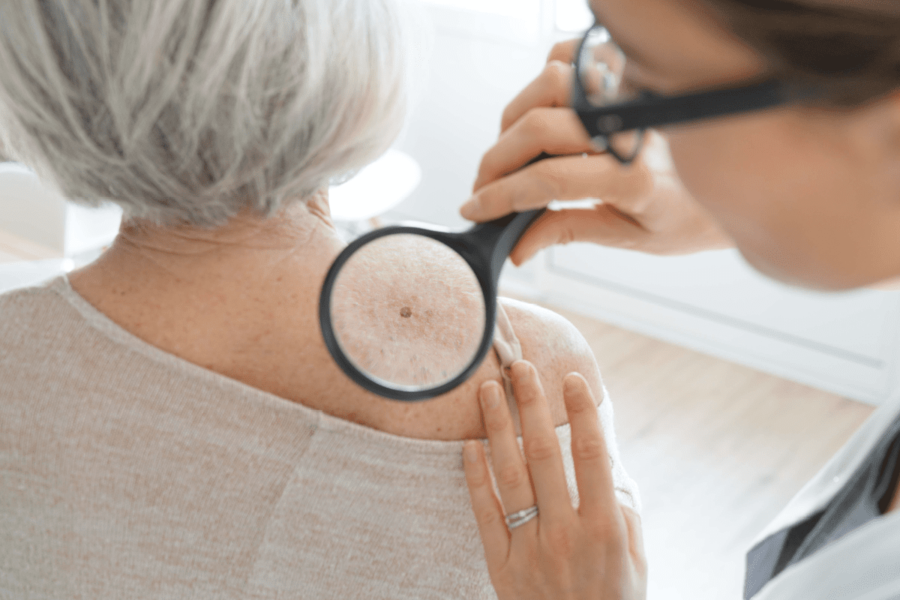Two webinars will be held in May to cover the important topics of skin cancer and dermatology.
With Northern NSW and the Mid North Coast considered ‘NSW melanoma hotspots’, our community members are at a high risk of developing skin cancer.
These topics are essential for healthcare professionals in the region, with 62 cases of melanoma per 100,000 people.1
The skin is a person’s largest organ and accessing timely, affordable, relevant and ongoing care for skin conditions is essential. This is why it’s time to talk skin cancer and dermatology with the experts.
Two webinars will be held, featuring Dr Tristan Hicks and Dr Hsien Herbert Chan respectively:
Let’s Talk Skin Cancer – with Dr Tristan Hicks
Tuesday 3 May 2022
6:30pm – 8:10pm | Delivered online via LiveWebinar
3 CPD points apply
Let’s Talk Dermatology – with Dr Hsien Herbert Chan
Thursday 5 May 2022
6:30pm – 8:10pm | Delivered online via LiveWebinar
3 CPD points apply
*Clinical images invited
Who is Dr Hicks?
Dr Tristan Hicks is a specialist GP who has worked as a surgical assistant in theatre as well as in mainstream general practice for a number of years before moving exclusively into the skin cancer field in 2015. He holds a Fellowship of the Skin Cancer College Australasia and is only a few weeks away from completing his Master of Medicine Degree in skin cancer through The University of Queensland.
In the ‘Let’s Talk Skin Cancer’ webinar, Dr Hicks will explore:
- Skin cancer statistics
- Risk factors, signs and symptoms
- Aetiology, types and stages of skin cancer
- Diagnosis and management of skin cancer as well as common skin cancer mimics
- Techniques that can be used to sample lesions
- Key considerations involved in deciding surgical margins
- Methods available to treat and prevent skin cancers including common non-surgical treatments such as systemic and field therapy.
“This webinar will provide insights into the diagnosis, treatment and ongoing management of skin cancers, including melanoma, SCCs and BCCs,” said Dr Hicks.
“It will explore the surgical and non-surgical treatment of common skin cancers, as well recent advances in systemic therapy for metastatic melanoma.”
Who is Dr Chan?
Dr Hsien Herbert Chan has been a dermatologist in the Northern Rivers region since 2017. He has a particular interest in the early diagnosis and management of skin cancers and the management of inflammatory skin conditions.
He has recently completed a Confocal Microscopy Fellowship at the Melanoma Institute of Australia and is a Dermatology Staff Specialist at the Princess Alexandra Hospital, Brisbane, where he runs the Confocal Microscopy Clinic for the non-invasive diagnosis and mapping of Lentigo Maligna and atypical melanocytic lesions.
Dr Herbert Chan is co-author of the recently updated Cancer Council Clinical Practice Guidelines for Keratinocyte Cancer and has published research articles on a wide variety of dermatological conditions.
In the ‘Let’s Talk Dermatology’ webinar, Dr Chan will cover:
- Introduction to the skin
- Eczema, dermatitis and related conditions
- Psoriasis and other papulosquamous conditions
- Acne vulgaris, acne rosacea and related disorders
- Skin infections: bacterial, fungal, and viral
- Systemic immune reactions affecting the skin
- Barriers to access, wait times, financial burden and stigma.
“This webinar will expand your skills in diagnosing and treating dermatological conditions in your practice,” said Dr Chan.
“The skin is the largest and most accessible organ, and long-term skin conditions are one of the most common complaints in the primary care setting.”
Learning objectives
Let’s Talk Skin Cancer:
- Describe the burden of melanoma skin cancer in Australia and in our local area
- Develop a systematic approach to performing skin checks
- Identify high-risk lesions and when referral may be appropriate
- Improve the assessment skills needed to support accurate diagnosis of common skin cancers and mimics
- Explain treatment choices and the role of the multidisciplinary team in the management of high-risk lesions or metastatic disease
- Outline common surgical margins and how to interpret reports
- Apply available treatment options, including common field therapies
- Understand and implement skin cancer prevention strategies and appropriate follow-up.
Register at: https://app.livewebinar.com/779-096-852
Let’s Talk Dermatology:
- Distinguish the characteristics of commonly seen skin disorders
- Improve confidence in making appropriate diagnosis
- Recognise the conditions that need urgent referral
- Appraise the various aetiologies for basic cutaneous lesions
- Apply a treatment plan and follow up procedure to effectively treat skin disorders.
Register at: https://app.livewebinar.com/692-908-053
*Please note that as part of the webinar, Dr Hsien Herbert Chan invites those attending to send de-identified images for training and education purposes. Patients should be informed as to how these clinical images may be used and the consent process should be documented in the medical records, including the scope and details of the consent. Clinical images can be sent to [email protected].
Clinical images used for teaching, training, and research should be de-identified, where possible, and must comply with relevant research or ethical guidelines. When de-identifying photographs, remember that seemingly insignificant features, such as tattoos, can still make a person identifiable to others. Even when all identifying features are removed, sometimes the clinical condition itself may provide recognition – the rarer the clinical presentation, the more likely it may be identifiable.
Clinical images taken by doctors on their personal mobile device in the course of providing clinical care are part of, and should be stored securely in, patient’s health record. This means that clinical images are treated in exactly the same way as other clinical records in terms of security and decisions about disclosure. For young children, their parents or guardians must provide consent.
Privacy Amendment Act 2012 – https://www.legislation.gov.au/Details/C2012A00197



